
Oh, stop worrying. We aren’t about to punish you with our imitation of Clyde McPhatter and The Platters singing “Only You,” though we have fond memories of slow dancing to it at Friday night dances in our High School’s Music Room.
:format(jpeg):mode_rgb():quality(90)/discogs-images/R-3926838-1365708504-8706.jpeg.jpg)
Nor with our take on “Tears on My Pillow” by Little Anthony and The Imperials. Strangely enough, we can still pretty much recall all the words to both, and any number of other such hits from our formative years. And in the latter case, we had a 45 rpm version that played on the upside down RCA record player mounted below the dash in our ‘60 Plymouth Fury convertible. Which looked pretty much like this:

No, tonight we come to you inspired by the current discussions in Cape Brunswick about spending $35 million or thereabouts ‘for the children.’ Mostly because the adults in our School bureaucracy couldn’t tend to stewardship of the physical assets they’ve been entrusted with.
‘For the taxpayers,’ if you will.
As Chance would have it, we were reviewing some past ‘hits’ from our posting career, and came across these two that we feel are especially relevant and timely for our current circumtances. They still “have a good beat, and you can dance to them” in a manner of speaking.
The first one is this: http://othersideofbrunswick.blogspot.com/2009/07/economics-101-prioritizing-spending.html
It refers to this earlier post: http://othersideofbrunswick.blogspot.com/2009/07/tough-choices-governing-or-spending.html
You can read them by following the links, but like a good OS, we want to make them accessible to you, so we’re spinning them up right here tonight for all you groovy guys and gals. (Note that both are from just our second month of existence, so our ‘voice’ had not yet reached its current level of maturity.)
-----------------------------------------------------------------------------------------------------------------------
Friday, July 10, 2009
Tough Choices: Governing, or Spending?
A friend once mentioned this simple concept: "you can govern, or you can spend." I've repeated it a number of times in "testimony" before the Town Council, with the usual results of such efforts. I appreciate the underlying wisdom anyway.
To govern means to "moderate." If you put a governor on your child's car, it is not there to allow them to go beyond what the car (and they) can handle. It is there to moderate, or limit, the speed your child can achieve.
And many of us, a dying breed perhaps, look for our elected "leaders" to exercise prudence and judg-e-ment (see Biden pronunciation guide) as they assess the revenue they have available and the budget requests before them, and attempt to reconcile the two.
And what do we hear in response? "We have a lot of tough choices to make." Or, "we face some really tough decisions."
Let's declare at the outset that those who fund government, involuntarily I might add, face such challenges everyday as they grapple with their own financial realities. And we shouldn't blame those good folks a bit if they feel little sympathy for their elected officials.
All of us understand that there are a broad range of factors that complicate matching local revenues with local expenses. Some of these are random in nature, or relatively unpredictable, such as twice the normal rainfall or snowfall amounts. Other factors are entirely predictable, because they have to do with the popular tendency to look to government and the taxpayers to resolve whatever personal dilemmas a constituent might face, like finding a babysitter, for example.
Other equivocations aside, I assert there are at least two fundamental reasons why budget cycles at every level result in wringing of hands and gnashing of teeth.
First, government officials are oblivious to the defining principles that dictate what the role of government is, and what it isn't. At the Federal level, the U.S. Constitution constrains the role of government, and every federal official takes an oath to protect and defend the principles of that document, although you'd never know it. At the State level, there is a Constitution that defines and limits the powers of the government in Augusta, with oaths required to uphold those constraints. Again, you'd never know it. What fun is it to be in power if you can't do whatever you damn well want?
At the local level, we have a Town Charter that defines the role that municipal government is to play in the day to day conduct of town affairs. This document, in theory, says what our local leaders can dabble in, and what they can't.
A few years ago, a town resident pleaded for town government to provide day care for her children. I could find no language in the town charter that authorized such a role, but that objection seemed to fall on deaf ears. "People are demanding these services" is the response in such instances. To which I reply if people "demand" that the town service and repair their cars, does that mean we should do it at taxpayer expense? Of course not. Demanding has absolutely nothing to do with legitimacy. And we've yet to see a list of names of those demanding things from the town; wouldn't that be fun to look at?
Second, elected officials, no matter what their previous principles might have been, undergo a conversion once they arrive in office. I have personally seen this happen in more than one case. The impulse to make everyone happy overwhelms the ability to distinguish "needs" from "wants." Suddenly, whatever anyone asks for becomes a priority. Subjectivity overwhelms objectivity.
So, when it comes to budgets, our officials have no grounding in what government is obligated to do and prohibited from doing, and further, they seem unable to distinguish which "demands" from residents are a necessity, and which are simply a blatant attempt to have someone else pay for their desires.
The end result is a disaster every time budget season rolls around. Those responsible end up overwhelmed by all manner of emotional pleadings and irrelevancies, because they have not established an a priori understanding of what budgets are designed to do and not do. In the absence of such specifics, seekers and pleaders perceive a blank canvas on which to draw their idyllic view of "community needs."
You can't run your family and home this way. Business owners can't run their enterprises this way. And there is absolutely no reason to tolerate government running OUR public affairs this way.
-------------------------------------------------------------------------------------------------------------------------------------
Saturday, July 11, 2009
Economics 101: Prioritizing Spending
(Note: what follows is an essay drafted some time ago. It is posted as a follow-on to "Tough Choices: Governing, or Spending?")
The first law of economics is “scarcity;” resources are limited, and there are competing needs for them. In other words, there is never enough money to take care of all the “needs” and “wants” that a person, an organization, a community, a state, or a nation considers vitally important.
Economics, at its most basic level, is the study of how choices are made given that scarcity exists. Prioritizing competing needs for limited resources is just one such aspect of how choices can be made.
The first law of politics, it is said, is to ignore the first law of economics. The aggregate needs and wants carried to government always vastly exceed the revenues available for funding them. “Scarce” beyond measure, however, is the politician who is ready to say no at the drop of a hat.
What’s the fun in saying no? How can you help someone, or solve a problem, by saying no? After all, most politicians run for office to “solve” some problem or to satisfy some “need” or to “make things better” for those who “need our help.” So the tendency is to act as if there are unlimited funds available, and at the first sign that there isn’t, to look for ways to increase available resources. Only when the taxpayers are pushed to a breaking point do we see a pulling back, and reluctant recognition of reality. Occasionally, a wily opportunist will see a chance to have a foxhole conversion from the normal spending ways, and become a tax-fighting populist.
Let me be clear; I don’t mean to imply that EVERY elected official lacks the common sense to understand the laws of economics, and of human nature, for that matter. There are those who are responsible and work their buns off to limit the size of government and the burden it places upon those who pay for it. At the same time, it’s abundantly obvious from our current state of affairs that these responsible and prudent individuals are not the dominant force in the politics of today; in fact, they endure frequent abuse for the positions they take.
I will say that I can cite cases of those who professed to be for lower taxes and limited government having a “conversion” to the big spending side once elected. And I can’t think of one example at the moment of a determined tax and spend “helper” who converted in the other direction once elected. It’s much more ego inflating to get swept up in the fun of responding to popular “demands” than it is to join the forces of reality and fiscal common sense.
Let’s get back to scarcity and prioritizing. We all generally recognize these principles as we manage our own personal finances. And we try to teach our children the same things, if only because we simply never have enough income to give them everything they want.
We generally understand that “vital needs” like food, shelter, and transportation have to take precedence over the latest fashion statements and adding another 1000 sq. ft. to our homes. We realize that we can’t buy a new computer every 3 months because they’ve gotten cheaper and better yet again! We know, I trust, that living on credit cards and never paying off the balances is economic suicide.
Since most humans develop an instinctive sense of these realities as they manage their own lives, why is it so terribly difficult for them to recognize the realities of managing government enterprises? I can think of at least three reasons why elected “leaders” behave in such ways:
1) They frankly believe that the purpose of government is to grow and redistribute income, and the consequences are irrelevant because the moral righteousness of their purpose trumps any other concern. They see themselves as having a higher calling than you and I, and that is to achieve societal perfection. They consider themselves to be instruments of “social and economic justice,” and they view the laws of economics and the behavior of free markets as inconvenient impediments that can simply be dismissed, or overcome with enough government action and spending. Rather than recognize the hard truths of human behavior, they believe their job is to absolve all who ask for help of responsibility for their bad choices and actions. As a result, they have a near-religious dedication to government activism.
2) Being in government is like having thousands of children all pounding on you for what they want, and asking you to spend OPM (other people’s money) to give it to them. How can you deny so many “children?” It’s so much easier to give them what they want and make them go away.
3) They have no robust tools for analyzing and proceeding in a responsible and orderly manner, and living within the means of the enterprise. So they are lost in the woods and unable to find their way out.
(note: I was going to list a reason 4), that they are fundamentally clueless in such matters, but making such an assertion is beneath Other Side.)
Reason number one can only be dealt with in practical terms by changing who we elect to take responsibility for the government enterprise. Reason number two has to do with wanting to be liked (loved?) and being pleased with seeing one’s name on a brass plaque, among other attractions. I can’t really do much about these.
But I do have some ideas on reason number 3. I spent my career in the Defense industry, working with combat control systems that are used aboard Navy ships. As much money as DOD spends every year, it still isn’t enough to do everything that should be done, buy everything that should be bought, and perfect our national defense. Combat systems are inherently very expensive, and they must perform as perfectly as we can manage, because they are capable of sending powerful weapons over very long distances, and they are responsible for protecting innumerable lives and very costly assets. Still, the scarcity law applies.
Some years ago, I came across a priority system that a Defense organization uses to rank the need for upgrades to existing systems. It may not be perfect; but no matter. It provides a definitive way to prioritize funding and hence facilitate making choices.
Municipal government (and school departments, as well) have expenses falling into two major categories: operating expenses, and capital expenses. The first is the normal recurring expenses for salaries, supplies, utilities, etc. The second is mostly for big ticket items like new buildings, expansions, etc, and is where some hugely irresponsible and far-reaching mistakes are made. Too often, those responsible get swept up in the enthusiasm for building monuments to government primacy, all in the name of “community pride” and similar touchy-feely irrelevancies.
I have since adapted the defense priority system for use in prioritizing municipal capital budget items, and it can easily be adapted for other uses as well.
Here it is: a proposed structure for capital planning priorities:
Municipal Priority 1: The current situation prevents the accomplishment of an authorized, critical, and essential municipal function or responsibility, and jeopardizes health, safety, security, or is otherwise life threatening to municipality residents or visitors.
Municipal Priority 2: The current situation adversely affects the accomplishment of an authorized, critical, and essential municipal function or responsibility, and no work-around solution is known; it adversely affects cost and schedule risks to life cycle sustainment of the municipal activity.
Municipal Priority 3: The current situation adversely affects the accomplishment of an authorized, critical, and essential municipal function or responsibility, but a work-around solution is known.
Municipal Priority 4: The current situation results in citizen or staff inconvenience or annoyance, but does not affect accomplishment of an authorized and essential municipal function or responsibility.
Municipal Priority 5: Any other effect.
The nice thing about a priority structure like this is that it is objective; it has no ego, no pride, no personality, no lust for power, no anger, or any other human failing. So if you can get the governing body to accept the structure before getting down to individual items, you go a long way towards eliminating, or at least reducing bruised feelings. You have a very straightforward way to explain why one proposal is getting funded, and why another proposal isn’t. You have a way to rise above the human emotions that afflict such matters.
Here in Brunswick, this sort of discipline has never been popular, but it occasionally seeps into the process. If you look around town, you’ll see a magnificent addition to the town library, a lovely bike path, and brick sidewalks. All were “investments” made while the fire department and emergency medical technicians were housed in a station built during the horse and buggy era, and that can’t accommodate the weight and size of modern fire-fighting equipment. All while police work out of a basement in the lovely Town Hall.
This is a reflection on the priorities and influence of the beautiful people, who see libraries as expressions of elite stature and community exceptionalism, while public safety staffs are simply the gritty details of day-to-day existence. They do not add to the town’s panache like a gleaming library does, or a new school as well. Take it from me: never get in the way of the “schoolies,” and never get in the way of the “bookies,” either, unless you are itching for a knock-down drag-out with slim chances of success.
As I reread the above, it’s pretty obvious that the priority structure shown is not limited to just capital expenditures. It is, in fact, just as well suited to operational elements in the budget. Does eliminating a position cripple the accomplishment of a core municipal responsibility, or does it simply inconvenience someone wanting to renew their dog’s license, for example?
That’s it for this trip around the town. I hope you’ll either take the priority structure as it is, or modify it as you see fit, and then go to your town officials with it and ask that they begin to develop budgets with greater rigor, and that they be able to demonstrate to the taxpayers just how they went about making choices. Because that’s a very big part of governing. And as the saying goes, “you can govern, or you can spend.”
---------------------------------------------------------------------------------------------------------------------

Here’s hoping our elected betters will try real hard not to ‘step on our toes’ in their upcoming deliberations. But if we were you, we’d wear steel-tipped boots to the Tuesday dance.



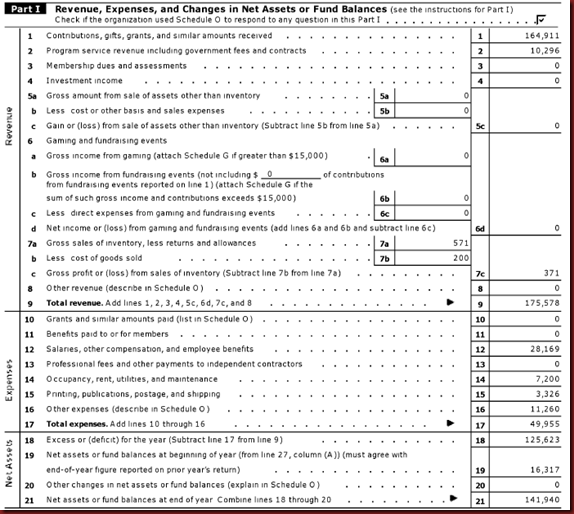



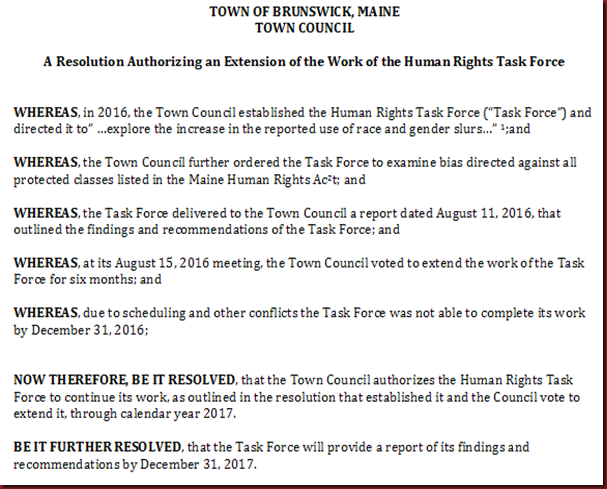













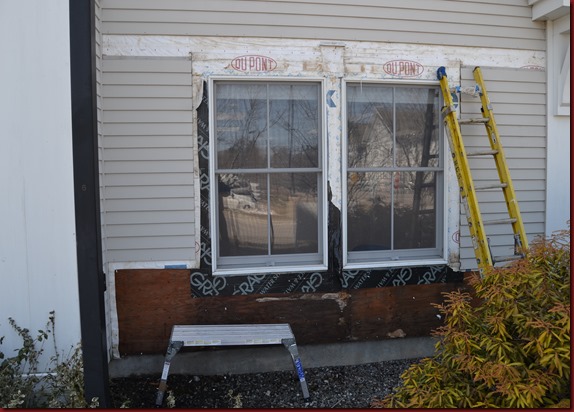

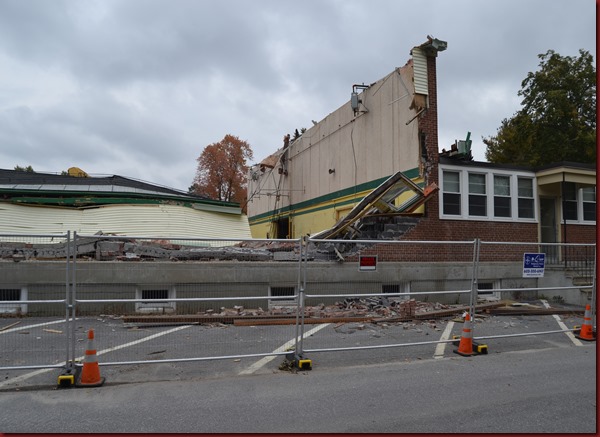



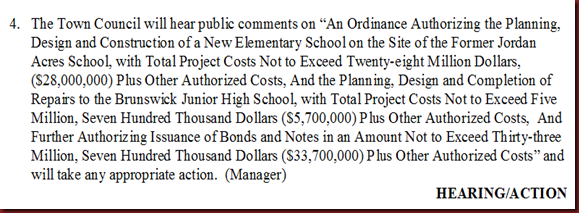

:format(jpeg):mode_rgb():quality(90)/discogs-images/R-3926838-1365708504-8706.jpeg.jpg)



